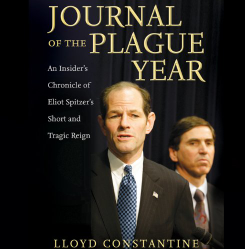Consider Justice Antonin Scalia’s biases and opinions before honoring jurist
The passing of Supreme Court Justice Antonin Scalia raises the distinct possibility, bordering on certainty, that his admirers soon will propose honoring the conservative legal icon by naming a courthouse or other legal structure or institution in his memory.
It is debatable whether names like Woodrow Wilson’s should be removed from Princeton University structures today, because of his racist yet mainstream policies a century ago. But it would clearly be unwise to honor the memory of the late Scalia with any object or institution intended to last longer than a weekend.
In 2003, dissenting from the court’s decision in Lawrence v. Texas, that nullified a law making consenting adult homosexual relations a crime, Scalia displayed his prejudice stating “Many Americans do not want persons who openly engage in homosexual conduct as partners in their business, as scoutmasters. as teachers. They view this as protecting themselves and their families from a lifestyle that they believe to be immoral and destructive” and he went on to call his views “mainstream.”
By June 2015, when the court decided Obergefell v. Hodges requiring that same-sex marriage be permitted nationwide, states were already racing to enact its legality in response to clear and rapidly increasing majority support. In March 2015, before the decision, a Wall Street Journal poll indicated that 59 percent of Americans supported the right of gays to marry.
No longer able to call his anti-gay bias “mainstream,” Justice Scalia’s dissenting opinion in Obergefell clothed his prejudice in a defense of his version of democracy, stating “a system of government that makes the People subordinate to a committee of nine unelected lawyers does not deserve to be called a democracy.” Later, in November last year, Scalia told a group of first-year Georgetown University law students that the Supreme Court’s recent equal protection ruling meant that there was no legal difference between gays and “child abusers” and “pederasts,” sarcastically calling child molesters “a deserving minority.”
There are fellow Americans other than gays who will take umbrage at any attempt to honor Justice Scalia in more than an ephemeral manner. Among them are minority students who were witness to his Dec. 9, 2015, comments during oral argument of the Fisher v. University of Texas affirmative action case. To what The New York Times reported as “muted gasps” in the courtroom, Scalia observed that some minority students that had been admitted to the University of Texas at Austin might be better off at “a less advanced school, a slower track school where they do well” and, going on, stated “I don’t think it stands to reason that it’s a good thing for the University of Texas to admit as many blacks as possible.” The vast majority of minority and white students at Austin are admitted because they were in the top 10 percent of their Texas high school classes.
The verdict of history may also stain Justice Scalia’s memory with the blood of countless thousands of Americans killed by gunshot following his majority opinion in District of Columbia v. Heller, interpreting the Second Amendment’s command — “A well regulated Militia, being necessary to the security of a free state, the right of the people to keep and bear Arms, shall not be infringed” — to mean that it established a right of handgun ownership unrelated to service in a militia. This from the jurist who supposedly was the leading practitioner of “originalism” and “textualism,” confining interpretations of the Constitution to the intent of those who wrote it and to the specific words they used, like “Militia.”
A Scalia center for legal ethics also might be a poor choice given the justice’s refusal to recuse himself from deliberating in a case where Vice-President Dick Cheney fought disclosure of his meetings with energy company executives (Cheney v. U.S. District Court), even though Justice Scalia went duck hunting with the vice-president while the case was before the court.
History may treat Antonin Scalia very harshly or very forgetfully on those last three controversies, but right now – today — the blatant homophobia he displayed and practiced on our nation’s ultimate bench counsels forbearance in forthcoming naming decisions.


0 Comments